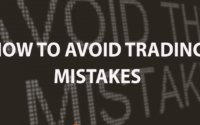Choosing the Right Forex Broker: Your Gateway to Successful Trading
Introduction
Selecting the right forex broker is a crucial decision for any trader. A forex broker serves as an intermediary, facilitating your access to the global forex market. The quality of services, trading conditions, and support provided by your broker can significantly impact your trading experience and success. In this comprehensive guide, we will explore the essential factors to consider when choosing a forex broker to ensure a seamless and profitable trading journey.
The Role of a Forex Broker
Before delving into the selection process, it’s essential to understand the role of a forex broker. A forex broker acts as a bridge between you and the forex market. They provide a trading platform that allows you to buy and sell currency pairs, access real-time price quotes, and execute trades.
In addition to executing trades, forex brokers may offer various services, including market analysis, educational resources, customer support, and account management. As the forex market operates 24 hours a day, five days a week, having a reliable and efficient broker is crucial for taking advantage of trading opportunities at any time.
Main Factors to Consider when Choosing a Forex Broker
Selecting a forex broker requires careful evaluation of several critical factors. The following are the key considerations to ensure you choose the right broker for your trading needs:
1. Regulation and Security
One of the most critical aspects of a forex broker is its regulatory status. Ensure that the broker is regulated by a reputable financial authority in its country of operation. Regulatory bodies, such as the Financial Conduct Authority (FCA) in the UK or the National Futures Association (NFA) in the US, enforce strict guidelines to protect traders and maintain market integrity.
A regulated broker offers an added layer of security for your funds, as they are required to adhere to capital adequacy requirements and keep client funds segregated from their operational funds.
2. Trading Platform and Technology
The trading platform is your primary tool for executing trades and conducting market analysis. It’s essential to choose a broker that offers a user-friendly and stable trading platform. Popular platforms like MetaTrader 4 (MT4) and MetaTrader 5 (MT5) are widely used for their advanced charting tools, technical indicators, and automated trading capabilities.
Ensure that the broker’s trading platform is compatible with your preferred devices, such as desktop computers, smartphones, or tablets. Additionally, look for a broker that provides a reliable internet connection and fast trade execution to avoid costly delays.
3. Trading Instruments and Spreads
Different brokers offer various currency pairs and other financial instruments for trading. Check if the broker offers the currency pairs you intend to trade, as well as other assets like commodities, indices, or cryptocurrencies if you plan to diversify your trading portfolio.
Consider the broker’s spreads, which represent the difference between the buy (ask) and sell (bid) prices. Lower spreads can be beneficial for reducing trading costs, especially for frequent traders or those using scalping strategies.
4. Leverage and Margin Requirements
Leverage traders to control larger positions with a smaller amount of capital. However, higher leverage also magnifies potential losses. Evaluate the leverage options offered by the broker and choose a level that aligns with your risk tolerance and trading strategy.
Be cautious with high leverage levels, as they can lead to significant losses if not managed carefully. Additionally, understand the broker’s margin requirements and the consequences of margin calls to protect your account from potential liquidation.
5. Deposit and Withdrawal Methods
Ensure that the broker offers convenient and secure methods for depositing and withdrawing funds from your trading account. Common deposit methods include bank transfers, credit/debit cards, and e-wallets like PayPal or Skrill.
Verify if the broker imposes any fees or charges for deposits and withdrawals, as excessive transaction costs can eat into your trading profits. Prompt and reliable withdrawal processing is crucial to access your funds when needed.
6. Customer Support and Services
Effective customer support is essential for resolving any issues or inquiries promptly. Test the broker’s customer support by reaching out with questions and evaluating their response time and helpfulness.
Look for brokers that provide educational resources, webinars, tutorials, and market analysis to assist you in improving your trading skills and knowledge.
7. Account Types and Minimum Deposit
Check the various account types offered by the broker and the minimum deposit required to open each type of account. Some brokers offer different account tiers with varying benefits, such as lower spreads, personalized support, or access to additional features.
Select an account type that suits your trading capital and objectives. Avoid brokers with excessively high minimum deposit requirements that may limit your ability to start trading comfortably.
8. Reputation and Reviews
Research the broker’s reputation and read reviews from other traders to gauge their experiences with the broker. Look for feedback on aspects such as trade execution, customer support, and fund withdrawals.
Keep in mind that no broker is without negative reviews, but a pattern of consistent complaints may indicate potential issues.
9. Demo Account
A demo account is a valuable tool for testing a broker’s platform and practicing your trading strategies without risking real money. Ensure the broker offers a demo account to familiarize yourself with their services and explore their trading conditions before committing real funds.
10. Additional Features and Services
Consider any additional features or services offered by the broker, such as educational materials, trading tools, or research resources. These additional offerings can enhance your trading experience and provide valuable insights into the forex market.
Conclusion
Choosing the right forex broker is a pivotal step in your trading journey. A reputable and reliable broker can provide the necessary tools and support for successful trading, while an inadequate broker can hinder your progress and potentially expose you to unnecessary risks.
It’s essential to prioritize regulatory compliance, trading technology, account types, and customer support when making your decision.
Remember that each trader has unique requirements and preferences, so choose a broker that aligns with your trading style, goals, and risk tolerance. By selecting the right forex broker, you establish a solid foundation for your trading success and increase your chances of achieving consistent profitability in the dynamic and exciting world of forex trading.
FAQs (Frequently Asked Questions)
1. Can I have multiple trading accounts with different brokers?
Yes, you can have multiple trading accounts with different brokers. Some traders opt to diversify their accounts across multiple brokers to access different trading conditions and instruments.
2. Can I change my chosen forex broker later if I’m not satisfied?
Yes, you can switch to a different forex broker if you are not satisfied with your current one. However, consider the potential costs and inconveniences associated with transferring funds and adapting to a new trading platform.
3. What is the best leverage level to use in forex trading?
The best leverage level varies depending on your risk tolerance and trading strategy. Conservative traders may prefer lower leverage (e.g., 1:10 to 1:50), while more experienced traders may use higher leverage (e.g., 1:100 to 1:500). Always use leverage responsibly and consider the impact on your risk management.
4. What is the importance of regulation when choosing a forex broker?
Regulation is of paramount importance when choosing a forex broker. Regulated brokers are held to strict standards of conduct, and they must adhere to specific rules and regulations set by the regulatory authorities. These regulations are designed to protect traders from fraud, unfair practices, and ensure the safety of their funds. When a broker is regulated, it provides a level of trust and confidence to traders, knowing that their funds are secure and that the broker operates transparently and ethically.
Regulated brokers are required to maintain client funds in segregated accounts, separate from the broker’s operational funds. This segregation ensures that client funds are not used for the broker’s business activities, reducing the risk of misappropriation.
Furthermore, regulated brokers must meet capital adequacy requirements, which means they must have sufficient capital to cover potential losses and financial obligations. This requirement ensures that the broker can meet its financial obligations to clients even during times of market volatility or unexpected events.
In contrast, unregulated brokers operate without oversight, and they may lack the necessary safeguards to protect traders. Traders who choose unregulated brokers expose themselves to higher risks, such as potential fraud or the inability to withdraw funds.
In summary, choosing a regulated forex broker is essential for the security and protection of your trading capital. Regulatory oversight instills confidence in traders, as it indicates that the broker operates with integrity and adheres to stringent financial standards.


